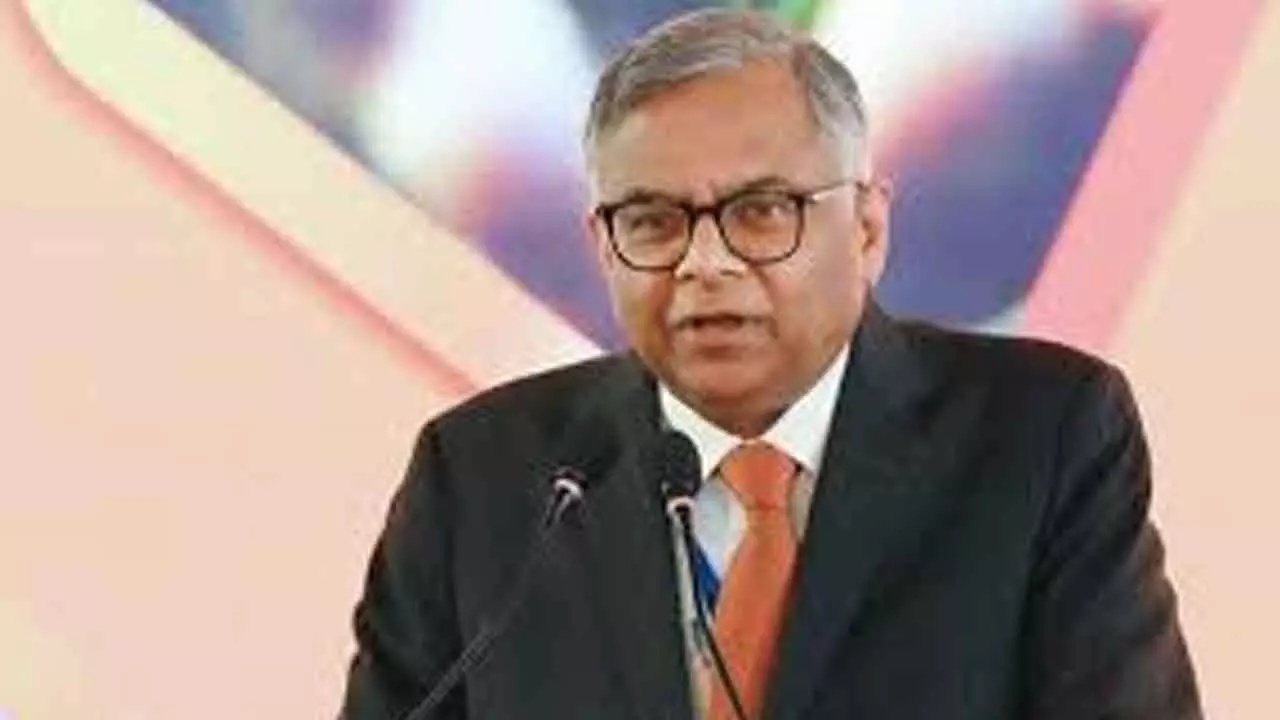Air India Chairman Appeals for Calm After AI171 Crash: Black Box Holds the Key
Air India chief N. Chandrasekaran urges patience and dismisses crash theories for AI171, emphasizing the aircraft's clear record and experienced pilots. Learn about the ongoing investigation and the airline's commitment to supporting victims' families
Air India Chairman Appeals for Calm After AI171 Crash: Black Box Holds the Key

In the wake of the devastating Air India flight AI171 crash that claimed over 270 lives in Ahmedabad on June 12th, Air India and Tata Sons Chairman N. Chandrasekaran has publicly urged for patience and an end to rampant speculation. Speaking for the first time since the tragedy, Chandrasekaran emphasized that the ill-fated Boeing 787-8 Dreamliner had no prior red flags, and critically, both its engines were in sound condition.
"It is an extremely difficult situation where I have no words to express to console any of the families of those who died," Chandrasekaran shared in an interview with Times Now, extending a heartfelt apology for the accident. "I deeply regret that this accident happened in a Tata-run airline. All we can do is to be with the families at this time, grieve with them, and we will do everything to support them at this hour and beyond."
The London-bound flight AI171, carrying 242 individuals including crew, crashed into a medical college complex moments after takeoff from Ahmedabad, resulting in the loss of all 241 passengers and crew onboard, along with several casualties on the ground.
Addressing the Swirl of Theories
With theories ranging from human error to engine failure and maintenance issues dominating discussions, Chandrasekaran firmly stated, "One would have to wait for the probe to conclude." The investigation is currently being spearheaded by the Aircraft Accident Investigation Bureau (AAIB), with a high-level government-appointed committee also involved. Preliminary findings, he indicated, could take approximately a month to materialize.
Chandrasekaran unequivocally defended the pilots' stellar credentials. "Both pilots were exceptional," he affirmed. "Captain Sabharwal had more than 11,500 hours of flying experience; the first officer Clive (Kundar) had more than 3,400 hours of flying experience. What I hear from colleagues is that they were excellent pilots and great professionals. So, we can't jump to any conclusions. I am told by all the experts that the black box and recorders will definitely tell the story. So, we just have to wait for that."
He further detailed the aircraft's maintenance history to dispel rumors: the right engine was newly installed in March 2025, while the left engine had undergone its last service in 2023 and was not due for maintenance until December 2025. This information contradicts some early speculation about engine or maintenance lapses.
Clarifying DGCA Notices and Maintenance Chains
Responding to questions about prior show-cause notices and penalties imposed by the Directorate General of Civil Aviation (DGCA) on Air India, Chandrasekaran clarified that these issues were unrelated to the crashed aircraft and pertained to other operational matters. "These are different from safety issues. If there is a safety issue, there is no way the DGCA will allow us to fly," he asserted, reinforcing the strict safety protocols in place. Recent enhanced checks mandated by the DGCA on Air India's Boeing 787 fleet, though causing some flight disruptions, found "no major safety concerns" in the 24 aircraft already inspected.
He also addressed comments from former civil aviation minister Praful Patel concerning Singapore Airlines, stating, "Singapore Airlines has been a great partner... their CEO is in constant touch with me... they have been offering all the help they can." Additionally, he dismissed reports of a Turkish maintenance link, confirming that none of Air India's 33 Dreamliners are maintained by Turkish Technic; rather, most are serviced by AIESL (AI Engineering Services Limited) or SIA Engineering Company. Concerns around Boeing's manufacturing practices, highlighted by whistleblowers, are being handled by US investigative agencies, with Chandrasekaran noting Air India's checks on their 787s have not raised any red flags.
Navigating Post-Crash Operations and Support
In the aftermath of the crash, Air India has faced a wave of flight delays and cancellations, leading to customer dissatisfaction. Chandrasekaran acknowledged the airline's need to improve its communication strategy, confirming that a dedicated strategic communications team has been put in place.
He also revealed that he has engaged with senior executives at both Boeing and GE, the engine manufacturer, to ensure a thorough review of aircraft and engine records.
As the nation grieves and the investigation continues, the focus remains firmly on the black box analysis – the key to unlocking the definitive cause of one of India's deadliest aviation disasters.

